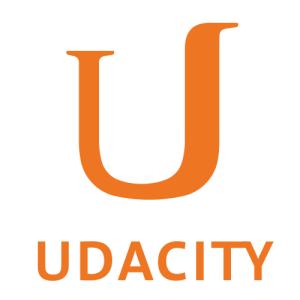Georgia Tech MOOC program: first thoughts
Bryan Alexander 2013-05-16
 A new online learning initiative made waves this morning, as Georgia Tech partnered up with Udacity and AT&T to launch a MOOC-based master’s program. Please read that link or the Chronicle’s story for background.
A new online learning initiative made waves this morning, as Georgia Tech partnered up with Udacity and AT&T to launch a MOOC-based master’s program. Please read that link or the Chronicle’s story for background.
I’d like to offer a few first thoughts, based on my work over the past several years. These are provisional comments, not polished assessments:
First, the new degree program’s price point is very important. Inside Higher Ed reports that the normal, face-to-face program costs $40,000 (for out of state residents), and that the Udacity one costs 1/6th of that, or about $6,666.67. This will certainly appeal to some students, especially during a time when Americans are so concerned about price and debt. As with San Jose State’s Coursera experiment, we can imagine people willing to lose some personal contact in order to save money. G-tech is hoping for up to 10,000 paying students.
Second, the staffing aspect is also critical, as the new program relies on fewer and non-tenure-track faculty. IHE again:
Georgia Tech expects to hire only eight or so new instructors even as it takes its master’s program from 300 students to as many as 10,000 within three years, said Zvi Galil, the dean of computing at Georgia Tech. The university will rely instead on Udacity staffers, known as “mentors,” to field most questions from students who enroll in the new program.
 Obviously Georgia Tech controls costs in growing its program, and maybe saves money overall. Shifting away from tenure-line faculty is not a new thing, nor a MOOC invention. Universities and colleges have in fact been reducing the number of tenure-track faculty for years, making adjuncts the most common instructors in American higher education. Georgia Tech’s plan continues the trend.
Obviously Georgia Tech controls costs in growing its program, and maybe saves money overall. Shifting away from tenure-line faculty is not a new thing, nor a MOOC invention. Universities and colleges have in fact been reducing the number of tenure-track faculty for years, making adjuncts the most common instructors in American higher education. Georgia Tech’s plan continues the trend.
Third, this is a new direction in attempting MOOC sustainability. We’ve seen partnerships before, but only at the level of classes, nor entire degree programs.
Fourth, this is a computer science degree, which has several implications. CS MOOCs tend to attract a strong online audience, from the Thrun AI class onwards. We might therefore bet that Georgia Tech’s program wins a large audience. On the other hand, computer science is an unusual field compared with other disciplines, at least in terms of engagement with computers. is a very strong limitation. Most academic leaders can dismiss CS as an outlying, unusually cyber-happy field.
Fifth, this program doesn’t appear to offer any pedagogical innovations. It might; we just haven’t heard of any.
Sixth, AT&T? Interesting move, presumably aimed at eliciting graduates for its workforce.
As a coda, I’d like to return to the possibility of higher education hitting an inflection point, my theme from last week. If this program succeeds and spawns imitators, the price of American higher education could well start to drop. Or the field bifurcates: online-only (or online-mostly) programs flourish, bringing average prices down, while some traditional (or blended) face-to-face colleges continue to increase their sticker prices. That’s a big if, but it’s possible. We can also imagine the program fizzling, or imitation limited to computer science programs nationwide – fascinating, but not having much of a broader impact.
What do you make of it?